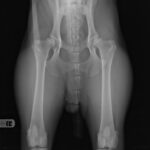Why Does My Dog Shiver When He Sleeps
Why Does My Dog Shiver When He Sleeps: Exploring Causes and Solutions for This Common Canine Behavior
If you’re a dog owner, you may have noticed your furry friend shivering or twitching while asleep. While some dogs may sleep soundly without any movement, others may exhibit various forms of involuntary movements, such as shaking, jerking, or even vocalizing. While this may seem cute or amusing at first, it can also raise concerns about your pet’s health and well-being. In this article, we’ll explore some possible reasons why dogs shiver when they sleep and offer some practical tips on how to help them feel more comfortable.
Subtitles:
1. What is normal and what is not?
2. Physical causes of dog shivering while sleeping
3. Neurological and psychological factors that affect canine sleep
4. How to help your dog sleep better: tips and tricks
5. When to seek professional help for your shivering dog
It’s a common misconception that all dogs are the same when it comes to sleeping patterns and behaviors. Just like humans, dogs have their own individual preferences and needs when it comes to restful slumber. Some dogs may prefer to sleep in cozy beds or blankets, while others may prefer harder surfaces or cooler temperatures. Some dogs may snore loudly or breathe irregularly while asleep, while others may barely make a sound. As a responsible pet parent, it’s important to observe your dog’s sleeping habits and be aware of any changes that may indicate an underlying issue.
Physical causes of dog shivering while sleeping
One possible reason why dogs shiver while sleeping is due to physical discomfort or pain. Dogs may experience muscle spasms or twitches due to various reasons such as arthritis, joint problems, digestive issues, or infections. They may also shiver if they are cold or overheated, as their bodies try to regulate their temperature. If you notice that your dog shivers often or for extended periods of time, it’s important to check their physical condition and make sure they are not suffering from any underlying health issues.
Neurological and psychological factors that affect canine sleep
Another possible reason why dogs shiver while sleeping is due to neurological or psychological factors. Dogs may experience nightmares, anxiety, or stress during sleep, which can trigger involuntary movements and vocalizations. They may also have conditions such as epilepsy or narcolepsy, which can disrupt their sleep cycles and cause them to shake or twitch. If you suspect that your dog’s shivering is related to a mental or emotional issue, it’s important to consult with a veterinarian or animal behaviorist who can offer tailored advice and treatment options.
How to help your dog sleep better: tips and tricks
Regardless of the cause of your dog’s shivering while sleeping, there are some practical steps you can take to improve their overall sleep quality. These include ensuring that they have a comfortable and safe sleeping environment, providing them with enough exercise and mental stimulation during the day, establishing a consistent bedtime routine, and avoiding any potential triggers for anxiety or stress. You can also consider using natural remedies such as lavender oil or chamomile tea to help calm your dog’s nerves and promote relaxation.
When to seek professional help for your shivering dog
While most cases of dog shivering while sleeping are harmless and can be easily managed with some lifestyle changes, there are some instances where you should seek professional help. For example, if your dog’s shivering is accompanied by other symptoms such as vomiting, diarrhea, lethargy, or loss of appetite, this could indicate an underlying medical condition that requires urgent attention. Similarly, if your dog’s shivering is severe or persistent despite your best efforts to address it, this could signal a more serious issue that needs specialized care.
In conclusion,
Dogs may shiver while sleeping due to various reasons, including physical discomfort, neurological or psychological factors, and environmental triggers. As a dog owner, it’s important to be aware of your pet’s sleeping habits and make sure they are comfortable and healthy. By providing them with the right kind of care, attention, and love, you can help your furry friend enjoy peaceful and restful slumber without any worries or concerns. And who knows? Maybe one day you’ll discover that your shivering dog is actually dreaming of chasing squirrels in the park or eating a giant steak!



